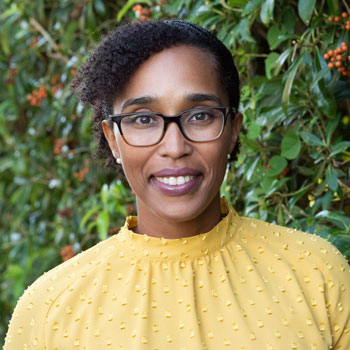Kira Banks, co-founder of the Institute for Healing Justice and Equity at Saint Louis University and associate professor in the department of psychology, says a spirit of non-defensiveness and a willingness to regard feedback as a gift are essential for organizations working to create an infrastructure for equity.
In addition to her teaching, research, and consulting, Banks’ podcast—Raising Equity—supports adults in talking to children about social issues.
Do business leaders now see DEI as essential and is it possible to make progress without support from the top?
Since George Floyd’s murder, more leaders are understanding that DEI is core. If leadership is not on board, then the work won’t be sustainable for long. You really need an organization that has everyone— regardless of whether DEI is in their title or if they’re on a task force— to own the work.
More organizations are understanding that symbolic statements are insufficient, that we have to back that up with action. I don’t think we can rest on the fact that there was a mass awakening to say that things are different. The only way that we can know that is if we continue to do the work.
What are some of the main starting points for organizations beginning to address DEI?
Organizations need to realize that this is a long game, this isn’t something where we see successes necessarily overnight. We should have, of course, those short term goals where we can have quick wins, but we also want medium and long term goals. My suggestion is to think about whether you need external help and support. If so, invest, don’t go cheap. And then, build a common language around DEI so that you know what it actually means for your organization, and shift from thinking about it as a problem to be solved and managed towards thinking about it as a value add, because it really is.
What are some ways to ensure that momentum and interest in advancing DEI can be maintained?
It’s important to think about the different opportunities for people to connect with the work so that it feels like there’s broad ownership, because any organization that has matured in this work understands that it’s everyone’s responsibility. The other thing is building in opportunities for people to share success, stories, and even mistakes—and how those mistakes can be turned into a learning point.
How important are DEI metrics?
Metrics are essential, but they don’t always have to be quantitative. I encourage organizations to not just create a scorecard that looks at numbers in terms of the representation of people with different backgrounds, but to look at whether their voices are being heard. We don’t just mean having people from different backgrounds at the table. We really mean people being able to bring their whole selves into the workspace.
